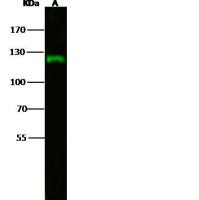High-Throughput Multimodal Strong Anion Exchange Purification and N-Glycan Characterization of Endogenous Glycoprotein Expressed in Glycoengineered Pi
互联网
互联网
相关产品推荐

Recombinant-Human-Phosphatidylserine-synthase-2PTDSS2Phosphatidylserine synthase 2; PSS-2; PtdSer synthase 2 EC= 2.7.8.29 Alternative name(s): Serine-exchange enzyme II
¥13104

Ubiquitously expressed transcript Rabbit pAb(bs-6749R)-50ul/100ul/200ul
¥1180

促销中..RIPA Lysis buffer (strong)
询价

Recombinant-Bovine-N-acetylglucosaminyl-phosphatidylinositol-de-N-acetylasePIGLN-acetylglucosaminyl-phosphatidylinositol de-N-acetylase EC= 3.5.1.89 Alternative name(s): Phosphatidylinositol-glycan biosynthesis class L protein; PIG-L
¥11032

PIK3CG/PI3K Antibody, Rabbit PAb, Antigen Affinity Purified | PIK3CG/PI3K 兔多抗 (抗原亲和纯化)
¥1699
相关问答

